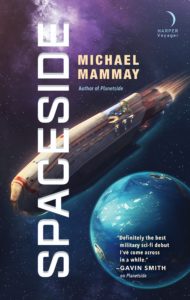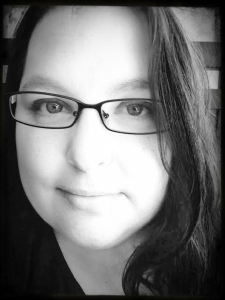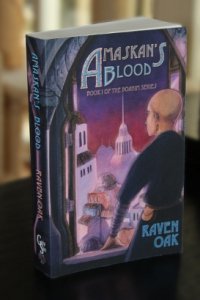 Raised by an Italian mother (don’t let my embarrassingly anglicized name fool you), the kitchen formed the hub of all activity in our home growing up. Not just for cooking meals, but also entertaining, welcoming guests, and even eating.
Raised by an Italian mother (don’t let my embarrassingly anglicized name fool you), the kitchen formed the hub of all activity in our home growing up. Not just for cooking meals, but also entertaining, welcoming guests, and even eating.
If anything happened in our home, it happened in the kitchen.
Few recipes stir up the memories and emotions I associate with then as risotto does. My mother had her own go-to risotto recipe that had evolved over the years she had learned it from her own mother, and it became a monthly tradition for her to cook up a batch of risotto rice, leek and chicken, which would keep us going for days.
I’m a big fan of meals that can be cooked in a pot. Not just because they can often be a bit more “˜hands off’ than other types of recipe (I’m infuriatingly lazy), but also because I find there’s more room to improvise and tweak it in line with your own personal preferences.
This risotto recipe is a bit braver than more traditional takes on the Northern Italian dish. It matches traditional risotto elements, like white wine, onion and garlic, with a much more outlandish pumpkin and walnuts. If I’m honest, I don’t think my Italian grandparents would approve (in fact, I know they wouldn’t – they never forgave me for my lazy tiramisu recipe) but if I didn’t deliberately undermine them at every given opportunity, then what kind of grandson would I be?
The truth is though, despite my tweaking on it, the recipe does still remind me of learning to cook in our home kitchen in the middle of the Berkshire countryside. And if a recipe can stir up intense memories like that, then it’s served its purpose.
One of the greatest cooking fallacies is that making a good risotto takes a lot of time and skill. Well, you’ll be glad to hear it only requires a good amount of time, and simply no skill. Fortunately this means that even someone as clueless as me can make it.
All this recipe needs is a lot of patience, and definitely a lot of stirring. Your arm might take a little while to forgive you, but the dish you get at the end more than makes up for it
If you’re making this in autumn or fall then you might already be drowning in pumpkin-inspired dishes (pumpkin lattes, pumpkin cookies, even pumpkin peanut butter), but this is too good not to try. Furthermore, it’s a great dish to break out for Thanksgiving as a vegetarian alternative to the more traditional meat-heavy meals on offer.
That said, I still love to break it out year-round, and enjoy it just as much in the summer.
Pumpkin & Walnut Risotto
Prep Time
10 mins
Cook Time
45 mins
Total Time
55 mins
Servings: 2 people
Ingredients
1 cube Vegetable Stock
500 ml Water boiled
50 g Butter
1 White Onion. Finely Diced
1 Stick of Celery. Finely Diced
1 Garlic Clove. Finely Diced
150 g Arborio Risotto Rice
125 ml White Wine
150 g Pumpkin Puree
25 g Butter
50 g Roquefort Cheese crumbled
50 g Walnuts chopped
Salt and pepper to taste
Instructions
- Add the vegetable stock cube to the boiling water and stir in thoroughly.
- Heat up a large frying pan over a medium heat, add 25g of the butter.
- Once the butter has melted, add the onion and celery. Cook for 10 minutes until softened.
- Stir in the rice, until the grains start to turn translucent at the edges.
- Turn up the heat a notch to medium-high, adding in the white wine. Stir until all the wine has disappeared. Add the dried sage.
- Slowly stir in the vegetable stock by adding in one full ladle at a time, stirring continuously until fully incorporated and the rice is cooked. Do this over the course of about half an hour.
- Stir in the pumpkin puree and take off the heat. Place a lid on top and leave to rest for 5 minutes.

- As the risotto rests, melt the other 25g of butter in a separate frying pan add the walnuts to toast.
- Serve the risotto. Top with the crumbled roquefort cheese and buttered toasted walnuts.
About the author:
Ben is a former semi-pro cyclist and big eater. Now he is just a big eater. He writes about food and drink for lazy cooks at The Eat Down.







 About the author: Michael Mammay is a science fiction writer. He is a retired army officer and a graduate of the United States Military Academy. He has a master’s degree in military history, and he currently teaches American literature. He is a veteran of Desert Storm, Somalia, and the wars in Iraq and Afghanistan. His debut novel, Planetside came out in July, 2018, and was selected as a Library Journal best book of 2018. The audio book, narrated by RC Bray, was nominated for an Audie award. The sequel, Spaceside, hit the shelves on August 27th, 2019. Michael lives with his wife in Georgia. You can find him on twitter (at)Michaelmammay or you can visit his website (note: website is michaelmammay dot com…don’t want to include a link in the email for risk of it going to spam)
About the author: Michael Mammay is a science fiction writer. He is a retired army officer and a graduate of the United States Military Academy. He has a master’s degree in military history, and he currently teaches American literature. He is a veteran of Desert Storm, Somalia, and the wars in Iraq and Afghanistan. His debut novel, Planetside came out in July, 2018, and was selected as a Library Journal best book of 2018. The audio book, narrated by RC Bray, was nominated for an Audie award. The sequel, Spaceside, hit the shelves on August 27th, 2019. Michael lives with his wife in Georgia. You can find him on twitter (at)Michaelmammay or you can visit his website (note: website is michaelmammay dot com…don’t want to include a link in the email for risk of it going to spam)




